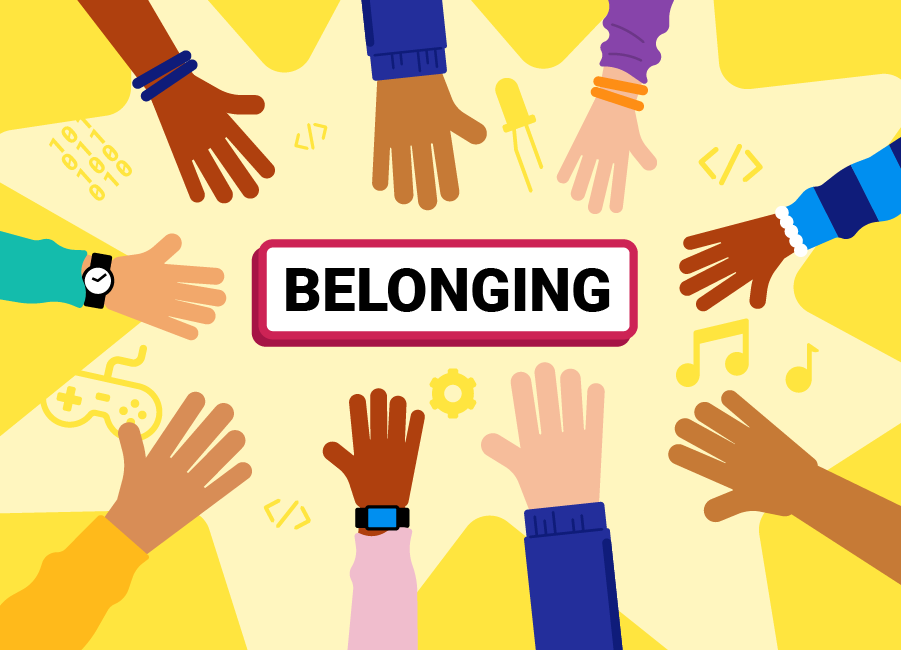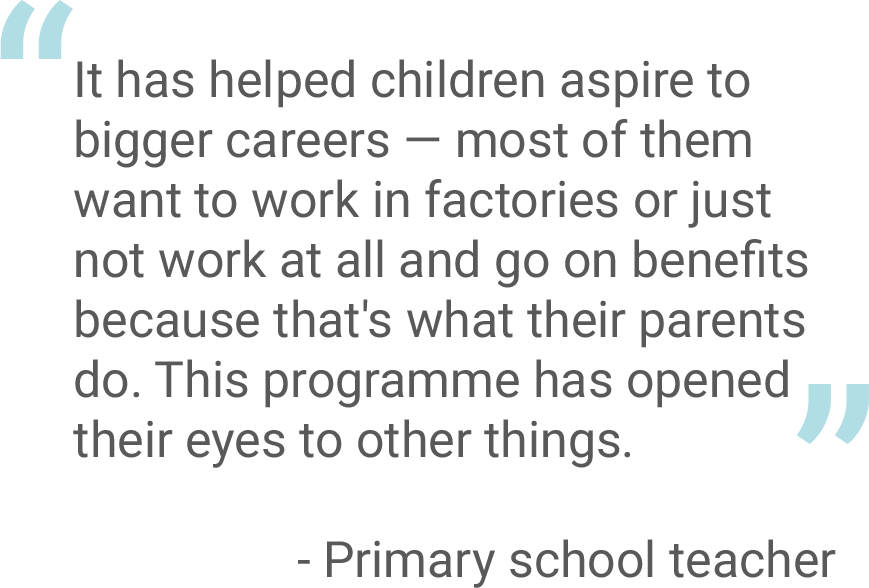
The Belonging strand of the Gender Balance in Computing programme built on research indicating that positive role models and parental encouragement can enhance girls’ sense of belonging in computing. We collaborated with the Behavioural Insights Team (BIT) and WISE to design and implement two interventions. The “My Skills My Life” intervention focused on enhancing girls’ self-identification through a series of ten lessons emphasising the significance of STEM careers. It achieved this by showcasing the experiences of women employed in computing. The “Code Stars” intervention revolved around two lessons on artificial intelligence (AI), which was followed up with weekly prompts to students’ parents or caregivers to initiate discussions about the AI lesson and the broader role of computing in society.
| Date range of intervention | September 2021–February 2022 |
| Age of participating students | 9–10 years old |
| Aim of intervention | To expose students to role models in computing and encourage support from parents in order to make students feel like they belong in computing |
| Intervention | Two different interventions: 1) “My Skills My Life” included ten lessons for primary-aged pupils. In one of the lessons, a female role model working in computing attended the school 2) “Code Stars” included two lessons on AI topics in computing and a series of prompts that schools were asked to send to parents over a 12-week period to encourage conversations between parents and pupils about computing |
| Method | Three-armed cluster randomised controlled trial (RCT): 175 primary schools were assigned at random to one of the two ‘treatment’ groups, using one of the intervention resources, or the ‘control’ group, who continued with their usual computing lessons |
| Evaluation | The two interventions were evaluated independently by an organisation called Behavioural Insights Team (BIT). BIT’s evaluation was primarily based on quantitative data collected from learners at the start and the end of the trial using a validated instrument called the Student Computer Science Attitude Survey (SCSAS), which asks learners about their attitudes towards Computing, along with a few additional survey questions specific to this evaluation BIT also collected qualitative data by visiting four schools where interventions were delivered to conduct lesson observations, teacher interviews, and focus groups with students who had participated in the lessons. They also interviewed two of the role models who delivered part of the “My Skills, My Life” intervention, and two of the parents from one of the schools participating in the “Code Stars” intervention. This data was analysed using case study methodology. |

The interventions did not yield statistically significant evidence of increased intention among girls to study computer science at GCSE or positively affect their attitudes towards computing overall. However, both interventions received positive feedback from teachers and students, indicating they were engaging and well-received. In the “Code Stars” intervention group, there was a 5.6 percentage point higher stated intention among girls to study computing compared to the control group.
The “My Skills My Life” intervention received positive feedback from teachers, although it did not show a measurable impact on pupil outcomes. Some teachers noted observed benefits such as increased student interest and motivation in learning about computing careers, heightened awareness of STEM career opportunities aligning with student skills and preferences, and improved confidence in computing.
Teachers described the lessons from the “Code Stars” intervention as enjoyable and engaging. Some teachers suggested that incorporating additional AI-themed lessons could significantly enhance girls’ interest in computing.
A full version of the “My Skills, My Life” resource can be accessed from the WISE website.
Childs, K. (2021). Factors that impact gender balance in computing. In Understanding computing education (Vol. 1). Proceedings of the Raspberry Pi Foundation Research Seminars.
Leonard, H. C., Quinlan, O., & Sentance, S. (2021, September). Female pupils’ attitudes to computing in early adolescence. In Proceedings of the 2021 Conference on United Kingdom & Ireland Computing Education Research (pp. 1-6). (Open-access author copy, presentation slides, and video presentation)